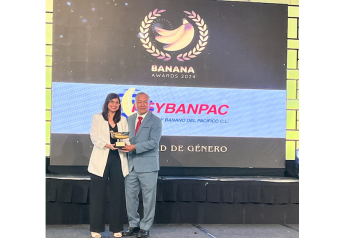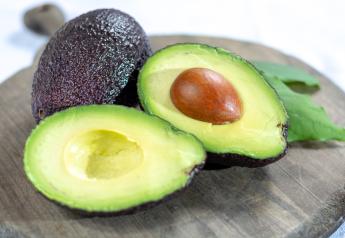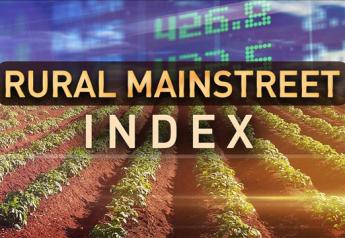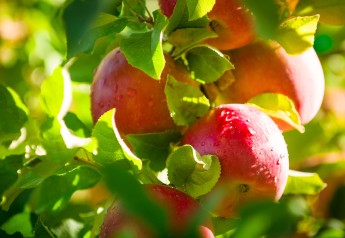Why so worried about “harvest box” similarities?

There are voices of concern about the third round of the U.S. Department of Agriculture’s Farmers to Families Food Box Program.
Democratic lawmakers are wondering if the USDA’s changes in the third round are aimed at recreating the food box as a “harvest box.”
From the July 31 letter from Democratic Reps. Rosa DeLauro, Marcia Fudge and Cheri Bustos to Agriculture Secretary Perdue:
“We write out of concern for the Department of Agriculture’s (USDA) proposed changes to the Farmers to Families Food Box Program and to urge you to stop implementation until the Department appropriately seeks public input on how these changes will impact farmers and families who access the program. Until then, USDA should continue to award contracts to farmers based on their performance in prior rounds of the program. On Friday, July 24, USDA announced new restrictions that will dramatically impact which farmers can continue to participate in the third round of the Farmers to Families Food Box Program. Specifically, USDA now plans to only award contracts to farmers who can supply ‘combination boxes,’ where each box includes specific minimum requirements of produce, dairy products, meat products, and fluid milk. Previously, farmers were eligible to receive contracts for ‘single-item boxes’ which contained product of only one of the four food categories.
Given the complexities and skillsets required for different areas of agriculture and farming, farmers today typically specialize in specific areas of production. Indeed, we have heard from farmers across the nation who are slated to be ineligible for future contracts because they do not produce product from all four food categories on their farms. Moreover, the logistical obstacles associated with identifying individual subcontractors for other food categories is impractical for many farmers and renders that alternative nearly impossible.
While we appreciate USDA’s effort to combat hunger during the COVID-19 pandemic, we are concerned by the potential impact these new restrictions will have on farmers, families, and local food systems. Limiting eligibility strictly to entities with the ability to procure all the required food categories will likely have implications on program costs and access, which must be fully understood before moving forward. Moreover, we are concerned these proposed changes move the program dangerously close to the Administration’s flawed ‘Harvest Box’ proposal, which faced bipartisan opposition and never received Congressional authorization.
We remain committed to working with you to ensure our nation’s farmers, as well as the families who rely on their harvest, are supported through this challenging time.”
Even before round three changes were announced, Ohio lawmaker Fudge was critical of the food box program at a July 21 hearing. From the release from her office that day:
“The Subcommittee held today’s hearing to determine whether or not USDA is operating the Farmers to Families Food Box program in a way that feeds the most people, and responsibly and equitably spends the money allocated to the program. I have grave concerns about both of these areas.
“First, because USDA has rushed this program out the door, there is very little quality control with regard to who gets these contracts and who is qualified to actually meet the need. Tens of millions of dollars have gone to inexperienced contractors that still haven’t delivered anywhere near what they’ve promised.
As one food bank executive explained today, if USDA had gone through established and capable channels, this problem could have been avoided. This is a humanitarian effort, not a gravy train.
“Second, because of that same hasty approach from USDA, there is still the ‘last-mile’ issue of actually getting food into the hands of those who need it, and as we heard today, food pantries and charities are having to foot the bill to make sure people get the food that the program promised to provide. This program must relieve hardships on overburdened charities like food pantries, not create them.
“Finally, we heard from food bank experts on the ground that USDA’s lack of planning and strategy on the program has led to inexplicable decisions and policies with regard to how funds are distributed, the regions into which the country is divided in terms of food distribution, and other problems. Despite these issues, USDA has refused, to date, to provide any insight or background on how these decisions are being made, and what quality control, if any, exists to correct them if they’re wrong.
“Just yesterday we saw that an additional 6 million people applied for SNAP. As our food bank experts told us today, hunger isn’t going away; it’s getting worse. This program was meant to help people, but not only am I afraid that isn’t happening fast enough, I worry USDA isn’t taking the operation of this program seriously enough to ensure it can happen at all.”
TK: The third-round changes in the program related to the combination box mandate do warrant questions, especially considering that the agency has improved on its original incarnation of the program, and that changing the model now may introduce new glitches. On the other hand, why does the faint shadow of the Trump administration’s Harvest Box proposal still worry Democrats? It makes no sense.







